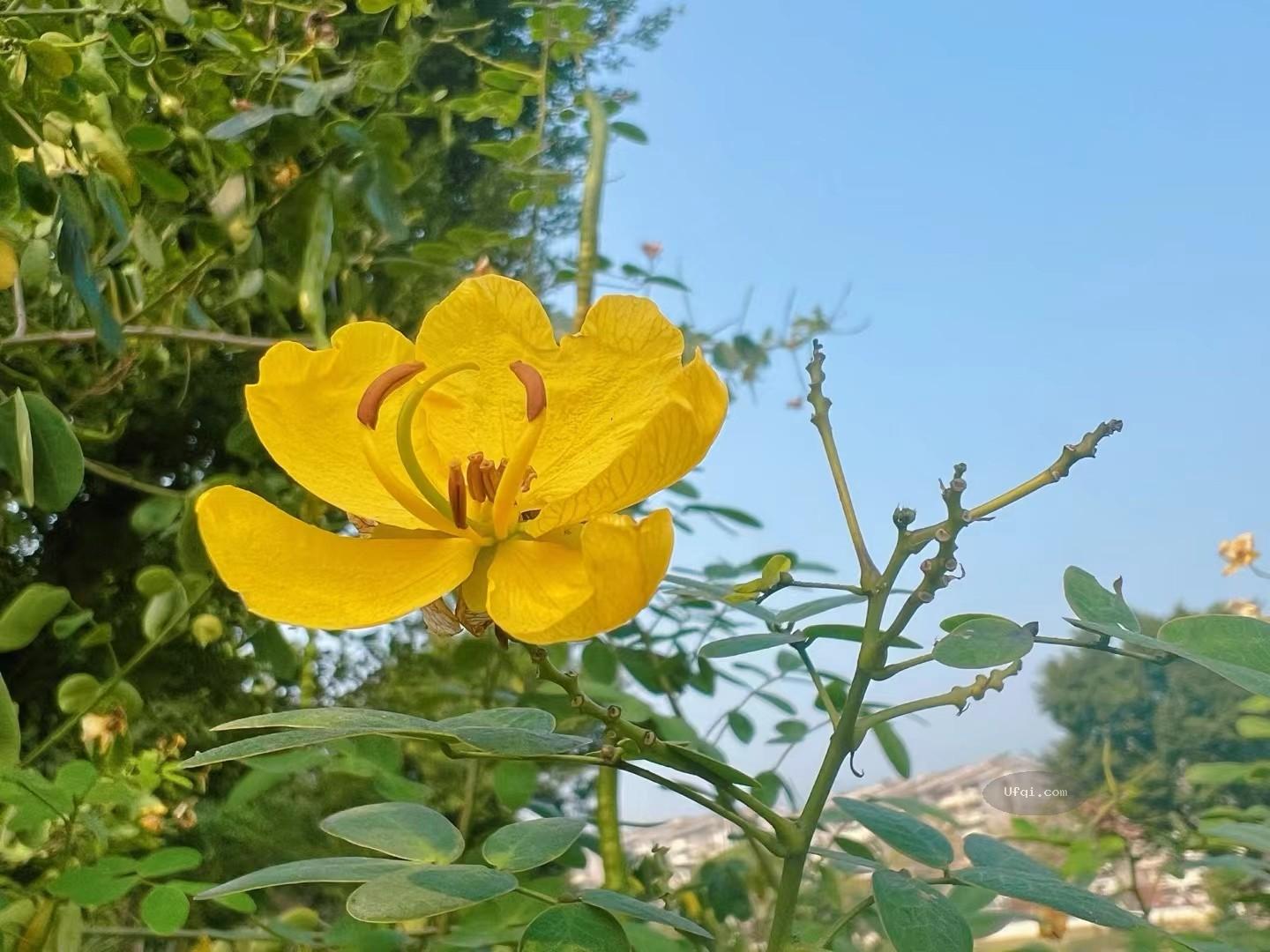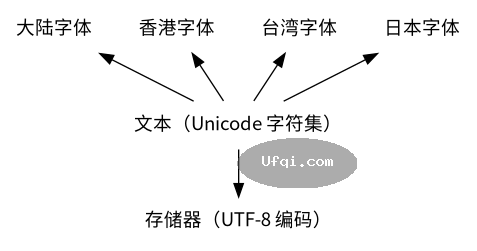


2023-01-25 , 7221 , 896 , 153
邓小平时代-下部-6:第17章 一国两制:台湾、香港和西藏-11
1989年1月,邓小平为了控制骚乱,向西藏派了一名新的党委书记——胡锦涛。胡锦涛和不同的干部谈话,但其基本目标反映了邓小平的政策:发展经济,扩大汉语教育,加强外部联系,和一些藏人展开合作,保持对分裂主义活动的严密控制。1989年春天,在北京学生示威的同时,西藏再次发生了骚乱,对此胡锦涛宣布实行戒严。
1989年初,当西藏的另一位宗教领袖、在藏人中信徒人数居第二位的班禅喇嘛去世时,又出现了一线希望。达赖喇嘛接到了以宗教领袖身份前往北京参加葬礼的邀请。北京的判断是,达赖总体上比藏人流亡团体态度更灵活,邓小平或许可以在达赖喇嘛来访时与他启动有益的会谈。
但是达兰萨拉的流亡团体明白北京的领导人想拉拢达赖,说服了达赖喇嘛不要前往。这次邀请被拒绝后,邓小平和他后来的接班人便放弃了与达赖合作的努力,使打破僵局变得遥遥无期。有观察家认为达赖喇嘛错过了一次在消除分歧上取得进展的良机。
此后,虽然达赖喇嘛数次派代表去中国磋商,但双方都没有在基本立场上让步。
1980年代中期以后形成了一种一直延续至今的恶性循环:达赖喇嘛在国外的名望鼓舞着当地藏人反抗,从而导致北京的镇压;而外国人知道了镇压的情况后会谴责北京,这又鼓励了藏人的反抗——如此反复不息。但是,藏人和汉人都很清楚始于1980年代中期的对外部市场的开放以及对西藏的经济援助给西藏带来的长期后果:生活水平的改善和经济独立性的衰落。
在1950年代,定居拉萨的外地人多为北京派去的中共汉族干部和军队。1980年代中期以后,居住在拉萨的外地人几乎全都是商人,他们都想利用中国对西藏的经济援助所带来的商机。很多人是来自临近穷困省份的回族或其他少数民族。
过去外地人几乎从来不住在西藏的农村,但是到了1990年代末,外地人的数量大有超过藏人之势。[17-116]由于越来越多的藏族青年为了自己的前程而学习汉语和接受汉族教育,无论是藏人和汉人都能看到,长远的趋势是将有更多的藏人学说汉语、上汉族学校、接受汉族文化的方方方面、并融入外部的经济,虽然他们不会放弃自己的藏族身份和忠诚。
自从邓小平1980年派胡耀邦去西藏以来,中共再没有做过重大努力使藏人和北京达成和解。流亡藏人与北京领导人的僵局一直在持续,前者决心建立拥有真正自治权的大西藏,后者则相信通过发展经济、推动藏人接受汉族的教育和文化,将使西藏进一步融入全国的经济和文化。一些外国人和北京领导人之间的对立也在继续,前者想帮助藏人得到更大的自治,后者则因为中国的崛起而对阻止外国人这些做法的能力变得更加乐观。
----
注释



[17-1]关于中国领土纠纷的说明,见M. Taylor Fravel, Strong Borders, Secure Nation: Cooperation and Conflict in China’s Territorial Disputes (Princeton, N.J.: Princeton University Press, 2008). [17-2]关于台湾和中美关系的一般背景,参见Ralph Clough, Island China (Cambridge: Harvard University Press, 1978); Nancy Bernkopf Tucker, Taiwan, Hong Kong and the United States, 1945–1992: Uncertain Friendships (New York: Twayne, 1994); Robert S. Ross, Negotiating Cooperation: The United States and China, 1969–1989 (Stanford, Calif.: Stanford University Press, 1995); Richard C. Bush, Untying the Knot: Making Peace in the Taiwan Strait (Washington, D.C.: Brookings Institution Press, 2005); Michel Oksenberg, “Taiwan, Tibet, and Hong Kong in Sino-American Relations,” in Ezra F. Vogel, ed., Living with China: U.S.-China Relations in the Twenty-first Century (New York: W. W. Norton, 1997), pp. 53–96; Alan D. Romberg, Rein in at the Brink of the Precipice: American Policy toward Taiwan and U.S.-PRC Relations (Washington, D.C.: Henry L. Stimson Center, 2003); and Nancy Bernkopf Tucker, Strait Talk: United States﹣Taiwan Relations and the Crisis with China (Cambridge: Harvard University Press, 2009). [17-3]中共中央文献研究室、中国人民解放军军事科学院编:《邓小平军事文集》(三卷本)(北京:军事科学出版社、中央文献出版社,2004),第3卷,1979年1月1日,第141页。 [17-4]中共中央文献研究室、中国人民解放军军事科学院编:《邓小平军事文集》(三卷本)(北京:军事科学出版社、中央文献出版社,2004),第3卷,1979年1月9日,第151页。 [17-5]中共中央文献研究室、中国人民解放军军事科学院编:《邓小平军事文集》(三卷本)(北京:军事科学出版社、中央文献出版社,2004),第3卷,1979年1月16日,第164–166页。
[17-6]中共中央文献研究室编:《邓小平年谱(1975–1997)》(上下册)(北京:中央文献出版社,2004),1979年1月9日,第467–468页;Robert Cottrell, The End of Hong Kong: The Secret Diplomacy of Imperial Retreat (London: John Murray, 1993); LWMOT, tape 19, p.21.奥克森伯格和伍德科克卸任后,在1981年秋天到1982年夏天间聚谈了39次,记录下他们在美中关系正常化过程中的经历。 [17-7]Robert A. Madsen, “Chinese Chess: U.S. China Policy and Taiwan, 1969–1979,” Ph.D. thesis, Trinity College, Oxford University, 1999, pp. 274–275. [17-8]Tucker, Strait Talk, p. 108. [17-9]与英国前首相希思(Edward Heath)的谈话,见《邓小平年谱(1975–1997)》,1983年9月10日,第931–932页。
[17-10]Tucker, Strait Talk, pp. 132–133. [17-11]James Lilley, with Jeffrey Lilly, China Hands: Nine Decades of Adventure, Espionage, and Diplomacy in Asia (New York: PublicAffairs, 2004), pp. 218–220. 另参见John H. Holdridge, Crossing the Divide: An Insider’s Account of Normalization of U.S.-China Relations (Lanham, Md.: Rowman and Littlefield, 1997), pp. 197–198. [17-12]Deng Xiaoping, Selected Works of Deng Xiaoping, 1975-1982 (Beijing: Foreign Languages Press, 1994; 2nd ed., 1995), pp. 371–372; 《邓小平军事文集》,第3卷,第181–185页。 [17-13]Holdridge, Crossing the Divide, pp. 199–201. [17-14]新华社,1981年9月30日。 [17-15]《邓小平年谱(1975–1997)》,1981年6月16日,第748–749页。
[17-16]Ross, Negotiating Cooperation, p. 182. [17-17]Kuan Yew Lee, From Third World to First: The Singapore Story, 1965–2000 (New York: HarperCollins, 2000), pp. 527–531. [17-18]Ross, Negotiating Cooperation, pp. 184–185; Holdridge, Crossing the Divide, pp. 211–215; Alexander M. Haig, Jr., Caveat: Realism, Reagan, and Foreign Policy (New York: Macmillan, 1984); Patrick Tyler, A Great Wall: Six Presidents and China: An Investigative History (New York: PublicAffairs, 1999). [17-19]Holdridge, Crossing the Divide, pp. 211–215; Ross, Negotiating Cooperation, pp. 186–187. [17-20]Holdridge, Crossing the Divide, pp. 215–222. [17-21]Holdridge, Crossing the Divide, pp. 222–226. Holdridge陪同布什访华。 [17-22]类似的解释见Holdridge, Crossing the Divide, p. 240; Ross, Negotiating Cooperation, pp. 190–258. [17-23]关于协议具体内容的谈判是在恒安石大使和中方对等官员之间进行的,中方将谈判结果送邓小平批准。 [17-24]Holdridge, Crossing the Divide, pp. 230–241; Ross, Negotiating Cooperation, pp. 189–200. 三个公报收入Ross, Negotiating Cooperation, pp. 265–272及Holdridge, Crossing the Divide, pp. 263–279。
[17-25]《邓小平年谱(1975–1997)》,1984年4月28日,第971页。 [17-26]2008年12月与美国国防部官员Eden Woon的访谈。 [17-27]Lee, From Third World to First, pp. 677–679. [17-28]齐鹏飞:《邓小平与香港回归》(北京:华夏出版社,2004),第66页。
[17-29]齐鹏飞:《邓小平与香港回归》(北京:华夏出版社,2004),第66页。对香港工作的一般介绍,见宗道一等编:《周南口述:身在疾风骤雨中》(香港:三联书店,2007),第265–267页。我关于香港问题的讨论大大得益于卫奕信爵士、Sin Por Shiu和Dalena Wright对香港局势的深刻见解。
[17-30]齐鹏飞:《邓小平与香港回归》,第56页。 [17-31]Christine Loh, Underground Front: The Chinese Communist Party in Hong Kong (Hong Kong: Hong Kong University Press, 2010). [17-32]Sin Por Shiu, “The Macao Formula and an Assessment of the Sino-British Negotiation over Hong Kong,” unpublished paper, Kennedy School of Government, Harvard University, May 2006; Steve Shipp, Macao, China: A Political History of the Portuguese Colony’s Transition to Chinese Rule (Jefferson, N.C.: McFarland, 1997). [17-33]齐鹏飞:《邓小平与香港回归》,第56–57页。 [17-34]齐鹏飞:《邓小平与香港回归》,第248页。
[17-35]作者2008年11月对Edgar Cheng的采访,他是包玉刚的女婿,经常陪同包玉刚拜访邓小平。 [17-36]后来写就的文件强调邓小平政策的一致性和连续性;有些文件甚至认为他已经做出香港回归的决定。
但当时公布的文件不支持这种观点。 当时尚未就这个做出决定。 [17-37]Cottrell, The End of Hong Kong, pp. 38–40. [17-38]齐鹏飞:《邓小平与香港回归》,第65–66页。
[17-39]据中共驻港最高官员许家屯说,1983年时香港大约有6000名中共党员。见Jiatun Xu, “Selections from Serialized Memoirs,” Lianhebao, translated in JPRS-CAR, 93-050, 93-070, 93-073, 93-091, 94-001, 94-010, 94-016, and 94-017, 1993–1994, 后来结集出版,见许家屯:《许家屯香港回忆录》(上下册)(台北:联经出版公司,1993)。 [17-40]这在许家屯的著作中说得很清楚。
许在1983年由北京派去香港领导中共的工作,他敢于向北京提供香港1980年代初舆情的更准确的报告,中共驻港最高官员许家屯说,1983年时香港大约有6000名中共党员。见Jiatun Xu, “Selections from Serialized Memoirs,” Lianhebao, translated in JPRS-CAR, 93-050, 93-070, 93-073, 93-091, 94-001, 94-010, 94-016, and 94-017, 1993–1994, 后来结集出版,见许家屯:《许家屯香港回忆录》(上下册)(台北:联经出版公司,1993)。 [17-41]Sin Por Shiu, “The Macao Formula,” pp. 14–15. [17-42]Cottrell, The End of Hong Kong, p. 54–55. [17-43]Percy Cradock, Experiences of China (London: John Murray, 1994). [17-44]Cottrell, The End of Hong Kong, p. 56. [17-45]Cottrell, The End of Hong Kong, p. 57. [17-46]《邓小平年谱(1975–1997)》,1981年4月3日,第729页。
[17-47]Xu, “Selections from Serialized Memoirs.”
[17-48]齐鹏飞:《邓小平与香港回归》,第70页;Sin Por Shiu, “The Macao Formula,” p. 21. [17-49]Cottrell, The End of Hong Kong, pp. 66–67. [17-50]Cottrell, The End of Hong Kong, pp. 67–68. [17-51]Sin Por Shiu, “The Macao Formula,” p. 22. 另参见《邓小平年谱(1975–1997)》,1982年5月21日、6月2日、9月24日,第824、826、854–855页。 [17-52]齐鹏飞:《邓小平与香港“后过渡时期”的中英外交斗争》,《当代中国史研究》,2004年第4期,第59–71页。
[17-53]《邓小平年谱(1975–1997)》,1982年4月6日,第812–813页。 [17-54]2007年11月作者对唐纳德(Alan Donald)爵士的采访,他于1974年至1977年担任港府顾问,1988–1991年任驻华大使,曾负责为1982年撒切尔夫人的访华做准备。 [17-55]2007年11月作者对唐纳德(Alan Donald)爵士的采访,他于1974年至1977年担任港府顾问,1988–1991年任驻华大使,曾负责为1982年撒切尔夫人的访华做准备。
[17-56]Frank Ching, Hong Kong and China: “One Country, Two Systems” (New York: Foreign Policy Association, 1996), pp. 11–12; Cottrell, The End of Hong Kong, pp. 85–86. [17-57]Cradock, Experience of China, p. 179. 在她的回忆录中,撒切尔夫人用戏剧性的对抗来形容与邓小平的会面。又见Margaret Thatcher, The Downing Street Years (New York: HaperCollins, 1993). 尽管如此,当时的外交官们说双方都在正常外交会谈的范围之内表现得慎重、理性。 [17-58]Cottrell, The End of Hong Kong, pp. 87–88. [17-59]Cottrell, The End of Hong Kong, p. 88. 作者对唐纳德的采访。
[17-60]SWDXP-3, pp. 23–25. [17-61]Cottrell, The End of Hong Kong, p. 89. [17-62]Cottrell, The End of Hong Kong, p. 87. [17-63]Ching, Hong Kong and China, p. 11;对唐纳德的采访。 [17-64]Cottrell, The End of Hong Kong, pp. 91–92. [17-65]Cottrell, The End of Hong Kong, p. 89. [17-66]Cottrell, The End of Hong Kong, pp. 94, 97. [17-67]Cottrell, The End of Hong Kong, pp. 99–102. [17-68]Cottrell, The End of Hong Kong, pp. 101–107. Mark Roberti, The Fall of Hong Kong: China’s Triumph and Britain’s Betrayal (New York: J. Wiley, 1994), p. 64; 对唐纳德的采访。
[17-69]许家屯:《许家屯香港回忆录》,上册,第1–12页。 [17-70]Cottrell, The End of Hong Kong, pp. 113–114. [17-71]许家屯:《许家屯香港回忆录》,上册,第3页;许家屯:《许家屯回忆与随想录》(Brampton, Ont.:明镜出版社,1998)。



UfqiLong
[17-72]Cottrell, The End of Hong Kong, pp. 113–114. [17-73]Roberti, The End of Hong Kong, p. 155. [17-74]Xu, “Selections from Serialized Memoirs,” Lianhebao, May 14, 1993, translated in JPRS-CAR, 93-056, July 16, 1993. [17-75]Xu, “Selections from Serialized Memoirs,” Lianhebao, May 27, 1993, translated in JPRS-CAR, 93-050, July 16, 1993. 当地一句俏皮话将私营企业形容为“联合国”,因为这个词的意思可以是联接、合并或者国有化,也就是没收。 [17-76]许家屯:《许家屯香港回忆录》,上册,第12–28页。 [17-77]《邓小平年谱(1975–1997)》,1983年9月10日,第931–932页。
[17-78]Cottrell, The End of Hong Kong, pp. 129–132; Ching, Hong Kong and China, pp. 19–20. [17-79]Cottrell, The End of Hong Kong, pp. 132–146. [17-80]《邓小平年谱(1975–1997)》,1984年4月18日,第970–971页。 [17-81]Cottrell, The End of Hong Kong, pp. 148–153. [17-82]Xu, “Selections from Serialized Memoirs,” Lianhebao, June 1, 1993, translated in JPRS-CAR, 93-070, September 21, 1993; Roberti, The Fall of Hong Kong, pp. 92–93; 《邓小平年谱(1975–1997)》,1984年5月25日,第978页。 [17-83]宗道一等编:《周南口述》,第263–269页;
SWDXP-3, June 22–23, 1984, pp. 68–71. [17-84]Cottrell, The End of Hong Kong, p. 154–174. [17-85]Cottrell, The End of Hong Kong, pp. 163–174; Ching, Hong Kong and China, p. 27. [17-86]《联合声明》的文本和附件见Ching, Hong Kong and China, pp. 81–96; Cottrell, The End of Hong Kong, pp. 205–223. [17-87]《邓小平年谱(1975–1997)》,1984年10月3日,第998–999页;SWDXP-3, October 3, 1984, pp. 80–84. [17-88]Cottrell, The End of Hong Kong, pp. 106–109, 199–204; Roberti, The Fall of Hong Kong, pp. 125–126. [17-89]《邓小平年谱(1975–1997)》,1985年7月5日,第1058页;Roberti, The Fall of Hong Kong, pp. 145–148. [17-90]李后:《百年屈辱史的终结:香港问题始末》(北京:中央文献出版社,1999),第170–171页。
[17-91]Roberti, The Fall of Hong Kong, pp. 191–192. [17-92]SWDXP-3, pp. 214–220; 李后:《百年屈辱史的终结》,第172–173页。 [17-93]李后:《百年屈辱史的终结》,第185页。 [17-94]SWDXP-3, pp. 340. [17-95]李后:《百年屈辱史的终结》,第198页。
[17-96]Roberti, The Fall of Hong Kong, pp. 280–291; 李后:《百年屈辱史的终结》,第166–207页。 [17-97]Qian Qichen, Ten Episodes in China Diplomacy, foreword by Ezra F. Vogel (New York: HarperCollins, 2005), pp. 254–255. [17-98]Xu, “Selections from Serialized Memoirs,” Lianhebao, September 3, 1993, translated in JPRS-CAR, 94-015, March 8, 1994. [17-99]《邓小平年谱(1975–1997)》,1990年1月18日,第1306–1307页。 [17-100]Qian, Ten Episodes in China Diplomacy, pp. 257–260; 李后:《百年屈辱史的终结》, 第205–207页。
[17-101]彭定康的解释见Chris Patten, East and West: China, Power, and the Future of Asia (New York: Times Books, 1998). [17-102]Qian, Ten Episodes in China Diplomacy, p. 279. [17-103]《邓小平年谱(1975–1997)》,1978年11月28日,第442页。关于这个时期的西藏工作,我发现以下著作对我最有帮助:Melvyn C. Goldstein, The Snow Lion and the Dragon: China, Tibet, and the Dalai Lama (Berkeley: University of California Press, 1997); Tashi Rabgey and Tseten Wangchuk Sharlho, Sino-Tibetan Dialogue in the Post-Mao Era: Lessons and Prospects (Washington, D.C.: East-West Center, 2004); 丹曾编:《当代西藏简史》(北京:当代中国出版社,1996);Tsering Shakya, The Dragon in the Land of Snows: A History of Modern Tibet since 1947 (New York: Columbia University Press, 1999). 我也要感谢与Melvyn Goldstein的多次交谈,他无私地向一位中国问题专家传授有关西藏的知识。
另见陈为人:“胡耀邦与西藏”,收入苏绍智、陈一咨、高文谦编:《人民心中的胡耀邦》(Carle Place, N.Y.: 明镜出版社,2006),第166–185页;王力雄:《天葬:西藏的命运》(Mississauga, Ont.: 明镜出版社,2006);Barry Sautman and June Teufel Dreyer, eds., Contemporary Tibet: Politics, Development, and a Disputed Region (Armonk, N.Y.: M. E. Sharpe, 2006); 及 Robert Barnett and Shirin Akiner, eds., Resistance and Reform in Tibet (Bloomington: Indiana University Press, 1994). 达赖喇嘛在1992年9月11日写给邓小平和江泽民的信中概述了对西藏与中国关系的看法,该信见Andy Zhang, Hu Jintao: Facing China’s Challenges Ahead (San Jose, Calif.: Writer’s Club Press, 2002), appendix 5, pp.133–148. 关于西方对西藏的看法,见Orville Schell, Virtual Tibet: Searching for Shangri-la from the Himalayas to Hollywood (New York: Metropolitan Books, 2000). [17-104]Melvyn C. Goldstein, The History of Modern Tibet, vol. 2: The Calm before the Storm, 1951–1955 (Berkeley: University of California Press, 2007), pp. 98–99. [17-105]丹曾编:《当代西藏简史》,第132–146页。
[17-106]中央情报局官员John Kenneth Knaus讲述过这方面的计划,见其Orphans of the Cold War: America and the Tibetan Struggle for Survival (New York: PublicAffairs, 1999). [17-107]《邓小平年谱(1975–1997)》,1975年12月1日–5日、1977年9月27日,第134–135、207–208页。 [17-108]《邓小平年谱(1975–1997)》,1979年3月12日。 [17-109]《邓小平年谱(1975–1997)》,1979年3月17日。
[17-110]Memcon, Summary of the Vice President’s Meeting with People’s Republic of China Vice Premier Deng Xiaoping, 8/27/79, vertical file, China, Jimmy Carter Library, Atlanta. [17-111]郑仲兵主编:《胡耀邦年谱资料长编》(上下卷)(香港:时代国际出版有限公司,2005),1980年5月21、22日,上卷,第482–483页。 [17-112]Shakya, The Dragon in the Land of Snows, p. 126. [17-113]邓力群:《十二个春秋(1975–1987):邓力群自述》(香港:博智出版社,2006),第207–208页。 [17-114]Goldstein, The Snow Lion and the Dragon, p. 67. [17-115]Goldstein, The Snow Lion and the Dragon, pp. 69–71. [17-116]Xiaojiang Hu and Miguel A. Salazar, “Market Formation and Transformation: Private Business in Lhasa,” in Sautman and Dreyer, Contemporary Tibet, pp. 166–190; June Teufel Dreyer, “Economic Development in Tibet under the People’s Republic of China,” in Sautman and Dreyer, Contemporary Tibet, pp. 128–151; also Xiaojiang Hu, “The Little Shops of Lhasa, Tibet: Migrant Businesses and the Formation of Markets in a Transitional Economy,” Ph.D. thesis, Department of Sociology, Harvard University, 2003.



🔗 连载目录
🤖 智能推荐



